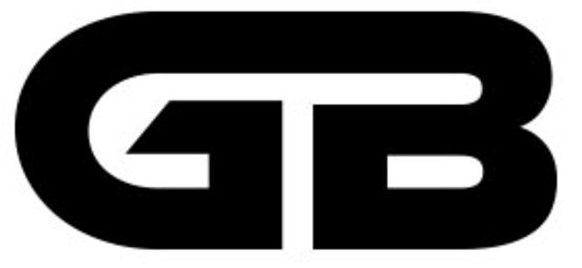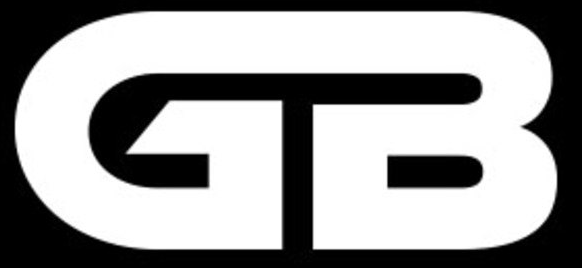In the vast, diverse world of online adult fiction, known as literotica, the need for effective categorization is paramount. With countless stories exploring a wide array of themes, fantasies, and fetishes, both readers and writers rely on a system that makes navigating this landscape manageable. This system revolves around the use of “LiteroticaTags.”
LiteroticaTags are essential tools that help organize and classify content, enabling readers to find exactly what they’re looking for, while also allowing writers to reach their intended audience. This article explores the concept of LiteroticaTags, discussing their significance, how they function, the challenges they present, and their broader impact on the literotica community.
The Purpose of LiteroticaTags
LiteroticaTags serve several key purposes within the adult fiction ecosystem. They help organize content, facilitate discovery, protect readers from unwanted themes, and foster community engagement.
1. Content Discovery
For readers, tags are invaluable for discovering content that aligns with their specific interests. With thousands of stories available online, tags allow readers to quickly find stories that match their preferences, whether they’re looking for a particular genre, kink, or narrative style. This streamlines the search process, making the vast world of literotica more accessible and user-friendly.
2. Content Organization
For writers, tags provide a systematic way to categorize their work. Proper tagging ensures that a story appears in relevant search results, increasing its visibility to potential readers. In a field as niche and varied as literotica, where readers often seek out very specific content, effective tagging is crucial for a story’s success.
3. Reader Protection
LiteroticaTags also serve as a form of reader protection. They act as content warnings, allowing readers to avoid themes or subjects that might be triggering or simply not to their taste. By tagging their stories accurately, writers help create a safer and more enjoyable reading environment.
4. Community Building
Tags play a significant role in building and maintaining communities within the literotica space. Readers who share similar interests can easily find content that appeals to them and connect with like-minded individuals. Tags create sub-communities around specific genres, kinks, or themes, fostering a sense of belonging among readers and writers alike.
Types of LiteroticaTags
Literotica tags can be categorized into several types, each serving a distinct purpose. Understanding these types helps both readers and writers navigate the content more effectively.
1. Genre Tags
Genre tags are broad categories that describe the overall theme or setting of a story. Examples include:
- Romance: Stories that focus on romantic relationships.
- Fantasy: Stories set in fictional universes with magical elements.
- Sci-Fi: Stories involving futuristic technology or space exploration.
- BDSM: Stories that explore bondage, discipline, dominance, submission, sadism, and masochism.
Genre tags help readers find stories that fit their preferred narrative style or setting.
2. Kink/Fetish Tags
Kink or fetish tags describe specific sexual themes or acts featured in the story. Examples include:
- Domination/Submission (D/s): Stories focusing on power dynamics.
- Voyeurism: Stories where characters derive pleasure from watching others engage in sexual activities.
- Foot Fetish: Stories focusing on the sexual attraction to feet.
- Roleplay: Stories involving characters engaging in pretend scenarios.
These tags are crucial for readers seeking stories that cater to their specific sexual interests or fantasies.
3. Character Tags
Character tags describe the types of characters involved in the story. Examples include:
- Male/Female: Stories featuring a male and a female character as the primary participants.
- Female/Female: Stories focusing on sexual encounters between two women.
- Group: Stories involving more than two participants.
- Transgender: Stories featuring transgender characters.
Character tags help readers find stories that reflect their interests in specific gender dynamics or character types.
4. Content Warning Tags
Content warning tags are used to alert readers to potentially sensitive or controversial themes within a story. Examples include:
- Non-consensual: Stories involving non-consensual sexual activities.
- Incest: Stories featuring sexual relationships between family members.
- Violence: Stories that include physical harm or abuse.
- Underage: Stories involving characters who are under the legal age of consent.
These tags are critical for ensuring that readers can avoid content that they find distressing or objectionable.
5. Tone/Style Tags
Tone or style tags describe the overall mood or writing style of the story. Examples include:
- Humor: Stories with a comedic or light-hearted tone.
- Dark: Stories with a more serious, intense, or grim atmosphere.
- Erotic: Stories focused on sexual content with explicit descriptions.
- Romantic: Stories that emphasize emotional connections and love.
Tone/style tags help readers find stories that match their preferred reading experience.
The Role of Tags in Enhancing User Experience
LiteroticaTags play a vital role in enhancing the user experience by making the vast amount of content more navigable and personalized.
1. Personalization
For readers, tags allow for a highly personalized reading experience. By selecting tags that align with their interests, readers can curate their own content feed, ensuring that the stories they encounter are relevant to their tastes. This level of personalization is particularly important in the realm of adult fiction, where reader preferences can be highly specific.
2. Efficient Browsing
Tags make browsing more efficient by reducing the time and effort required to find desired content. Instead of sifting through unrelated stories, readers can use tags to filter their search results, quickly narrowing down the options to those that meet their criteria. This efficiency is crucial in keeping readers engaged and satisfied with their experience.
3. Discovering New Content
While tags help readers find content that aligns with their existing preferences, they also serve as a gateway to discovering new content. Readers might explore tags that are adjacent to their interests, leading them to stories they might not have otherwise encountered. This serendipitous discovery enhances the reading experience and encourages exploration within the literotica community.
Challenges and Limitations of Literotica Tags
Despite their many benefits, literotica tags also present several challenges and limitations that can affect both readers and writers.
1. Overlapping and Redundant Tags
One of the challenges with literotica tags is the potential for overlap and redundancy. With so many possible tags available, different authors might use different terms to describe the same content, leading to fragmentation. For example, one writer might use the tag “Dom/Sub” while another uses “D/s,” even though both refer to the same dynamic. This can make it difficult for readers to find all relevant content, as they may not know all the variations of a tag.
2. Tag Misuse
Tag misuse occurs when a story is incorrectly tagged, either intentionally or unintentionally. This can happen when an author tags a story with popular tags to gain more visibility, even if those tags aren’t entirely accurate. This can lead to reader dissatisfaction when the content doesn’t match the tags, and it undermines the effectiveness of the tagging system.
3. Tag Inflation
Tag inflation refers to the phenomenon where a story is tagged with too many descriptors, some of which may be only tangentially related to the actual content. While this might increase the story’s visibility, it can also dilute the effectiveness of the tags, making it harder for readers to discern what the story is really about.
4. Content Censorship and Tag Limitations
In some cases, platforms may impose restrictions on certain tags due to legal, ethical, or community guidelines. This can lead to the censorship of certain themes or fetishes, limiting the variety of content available and potentially stifling creative expression. Authors may find it challenging to accurately tag their stories if certain terms are banned or discouraged.
The Evolution of Literotica Tags
The use of tags in literotica has evolved over time, influenced by changes in technology, reader preferences, and platform policies. Understanding this evolution helps contextualize the current state of tagging in the adult fiction community.
1. Early Days of Literotica
In the early days of online adult fiction, tags were relatively simple and straightforward. They primarily served to categorize stories by broad genres or character types. However, as the community grew and the diversity of content expanded, the need for more specific and nuanced tags became apparent.
2. The Rise of Niche Tags
As the literotica community expanded, so too did the range of available tags. Niche tags emerged to accommodate more specific interests and kinks, allowing for a more personalized and detailed tagging system. This evolution reflected the growing complexity and diversity of the content being created and consumed.
3. Algorithmic Tagging and Machine Learning
In recent years, some platforms have begun experimenting with algorithmic tagging and machine learning to improve the accuracy and consistency of tags. By analyzing patterns in user behavior and story content, these systems can suggest tags or even automatically tag content. While this technology is still in its infancy, it holds the potential to streamline the tagging process and reduce issues like redundancy and misuse.
The Impact of Literotica Tags on the Community
Literotica tags have a profound impact on the adult fiction community, shaping the way content is created, shared, and consumed.
1. Empowering Writers
For writers, tags offer a way to connect with their target audience and ensure that their stories are seen by those who are most likely to appreciate them. This can be particularly empowering for authors who write within niche genres or who explore unconventional themes. By tagging their stories accurately, writers can carve out a space for themselves within the larger literotica community.
2. Enabling Reader Choice
Tags empower readers by giving them control over the content they consume. Whether they’re looking for a specific type of story or trying to avoid certain themes, tags allow readers to tailor their experience to their preferences. This level of choice is critical in maintaining reader satisfaction and engagement.
3. Fostering Inclusivity and Diversity
The use of tags has helped foster a more inclusive and diverse literotica community. By accommodating a wide range of genres, kinks, and character types, tags allow for the representation of diverse experiences and fantasies. This inclusivity has helped the literotica community grow and evolve, attracting a broader audience and encouraging creative expression.
4. Creating Ethical Considerations
However, the use of tags also raises important ethical considerations. The ease of categorizing and accessing potentially controversial content, such as non-consensual or underage themes, requires careful consideration by both platform administrators and the community. Balancing creative freedom with ethical responsibility is an ongoing challenge that the literotica community must navigate.
Conclusion: The Future of Literotica Tags
As the world of online adult fiction continues to grow and evolve, so too will the use of literotica tags. Future developments may include more sophisticated tagging systems, enhanced by machine learning, that improve accuracy and personalization. There may also be greater efforts to standardize tags across platforms to reduce redundancy and confusion.
Moreover, as the community becomes more aware of ethical concerns, there may be increased scrutiny on how tags are used and regulated. Finding the right balance between creative expression and ethical responsibility will be key to the future of literotica tagging.
In conclusion, literotica tags are an essential tool in the adult fiction community, serving to organize content, enhance user experience, and foster community engagement. While challenges and limitations exist, the continued evolution of tagging systems holds the promise of a more efficient, inclusive, and ethically conscious literotica community. As both readers and writers continue to navigate this space, tags will remain a crucial element in shaping the future of online adult fiction.


